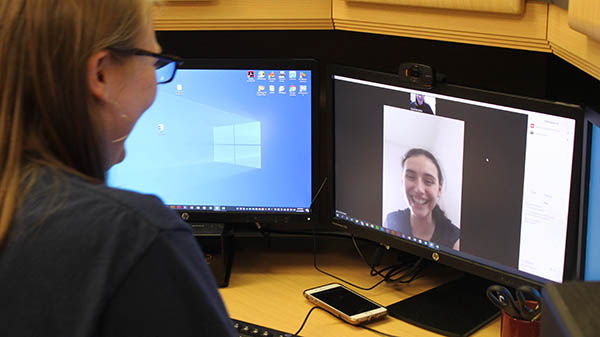Students who believe God may be calling them to ministry should be especially mindful of establishing healthy financial habits, campus minister Bill Morrison advises, since modeling behavior after biblical admonitions can free up resources to help advance the Kingdom.
“You have to choose who or what you’re going to serve,” said Morrison, who ministers at the University of Alabama at Birmingham. “Jesus addressed the subject of money more than any other subject in His teachings because it has such an attraction for us. It gives us a false sense of security.”
Students must consider what direction they want their lives to go, Morrison said — whether to serve God or serve money, which is temporary.
“Be rich in good deeds, generous and willing to share,” he quoted 1 Timothy 6:18.
He also advised students to view college as their job, even if they also do part-time work.
‘Offering of worship’
“You’re in college to do work, to prepare for doors to be opened later on in life, and you should do that as an offering of worship to God,” Morrison said.
A job, he added, “isn’t something that gets them to be able to enjoy their weekends or provide great vacations. It does that, but that’s not the sole purpose of having a vocation. It is God’s will for us as believers to work hard and to offer that work to God.”
Something people today should remember is to leave margin in their lives, Morrison noted, advising against rushing from one obligation to another, always eating out and wasting money on fast food.
Be disciplined
“Leave some margin, and prepare some of your meals at home if you live in an apartment,” he urged.
“Take advantage of campus dining if you are required to have that. Be disciplined about how you manage your time because so much money is wasted by college students eating out two or three times a day.”
Morrison also advises students to work while in college so they don’t have to take out more student loans than necessary.
As soon as they graduate, he suggests students use the first six months to pay as much as possible on their loans before interest starts accumulating.
“Pay it off as soon as you can,” he advises.
If students will be wise about how they structure long-term debt, it can free up monetary resources for the work of ministry, Morrison added.
‘Limited resource’
“For most of us, money is a limited resource, so it’s important to not live in debt and to account for every dollar.”
He urged graduates to get in the habit immediately of tithing 10% to their local church, contributing 10% to retirement and setting aside 3–5% for “benevolence.”
“If you hear of a missions opportunity at your church or somebody’s raising money, you have a built-in budget to be able to spontaneously give to that,” Morrison said, adding, “You don’t want to live where every dollar goes just to the necessities of life. You want to live within your means but also build in a way that you can be a blessing with what God blesses you with.”
Financial guidance has been necessary in every generation Morrison has led in his nearly 35 years of campus ministry.
“When you get out of college and get your first real job, it’s so tempting to try to show people that you are successful and that you have it together by what you acquire,” he said.
Thoughtful choices
He’s seen many students graduate, buy a new car and sign up for years of payments when they are driving a car that could be reliable for several more years. As soon as the last payment is made, they often trade it in and start another six-year note, Morrison observed.
“It’s just incredible the drain on financial resources to live that way.”
Live differently
Instead, if graduates resist the desire to impress friends and establish good financial habits, they’ll be in a better position for the future, Morrison said.
“When you get a home, don’t demand that you start in the same kind of house that you grew up in,” he noted. “Be content with what you can afford. Most Americans fall short of being content and get in that chase of having to impress people and acquire things.”
The message of pursuing contentment and managing resources wisely is especially important in this generation, Morrison noted, because “there is so much status attached to what we own.”
Christians, though, find their identity in a different place, he said. “It’s important for Christians to live differently and have a different goal with the resources God gives us.”






Share with others: